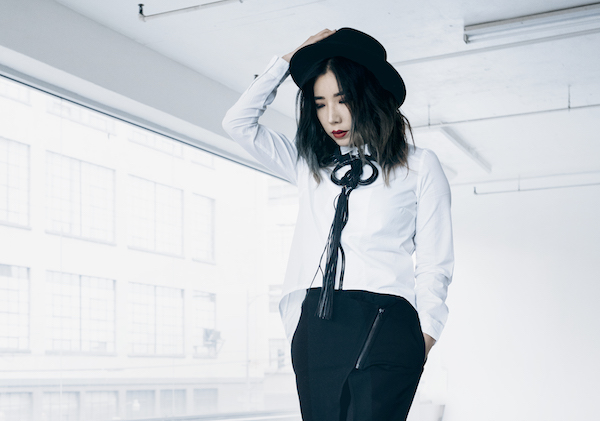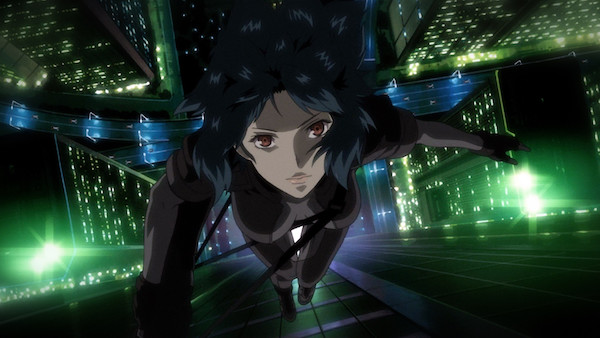Kore Asian Media asked if I wanted to interview my friend Jennifer Lee, better known as Tokimonsta. I thought: You want me to have a conversation with this accomplished artist about creating meaningful art, and exchange insights about life as a DJ, producer and hustler under the L.A. sky? I’m down! Sometimes as artists, we get so caught up in our daily schedules and routines, so it’s refreshing and good for the soul to catch up with someone who knows the grind and does amazing work. I wanted to see what I could learn from Toki and hear all the rad things she was up to, and cop an IG selfie. Here’s what went down. —Mark Redito (@markredito), formerly known as Spazzkid, is a Los Angeles-based electro pop musician.
Mark Redito: Being that we’re both producers, it’s easy for us to share the same context. Daily practice, routine and process are all important to me so that I can get time in for my music. Do you do anything similar?
Tokimonsta: I’m actually the exact opposite. If I sit down at my computer when I’m not in the mood, I find that I won’t be happy with what the results are. I shut it down once that happens. Occasional practice is good, and sometimes I’ll try to make something for fun with no real intentions behind it. I know a lot of producers try to work on something at least once a day, whereas I’ll try to make five full tracks in a week but then won’t do anything for the next month. Not that I would actually go that long without making music in terms of “start to finish.”
MR: Cooking has similarities to producing music in that there are things you can layer, and the end result is flavor. Do you think this way, too?
T: Creative people tend to have more than one way to express their creativity, whether it be by cooking, creating music, painting or designing clothes, and yet you could still be a master of any one of those and use DJing or producing music as another creative outlet. When you’re creative, you’re obviously creating something but the processes can be similar. All those layers result in the end product you’re trying to achieve. I always think it’s cool discovering how creative people can be in other areas that we might not suspect.
 (Ryan Feng/Kore Asian Media)
(Ryan Feng/Kore Asian Media)
MR: Does your Korean heritage and connection to your culture’s food trigger any memories or thoughts?
T: We’re all people not from here. Most of our parents are immigrants, and we [the second-generation] are a minority. Culturally we can identify more with being American but one of the ways we can tap back to our roots is through food. You can share your culture with other people and bond together with a meal. Whether I take my friends to go eat Korean barbecue or I go over to a Chinese friend’s house to eat more hot pot than I can possibly stomach, the whole experience is so much about the food and what it can do to help people interact.
In all realms, you need people who value tradition so that nobody loses sight of what that is. But you also need people who break barriers, that’s how you evolve and create new things. Like classic hip-hop heads who are like, “No, none of this electronic bullsh-t.” — you need them to exist because you need to maintain the tradition that’s there. I try to be as non-judgmental as possible, so even if there’s something I don’t like, I respect it.
MR: As you were developing your sound, did you come across people who criticized your “new school” music as something that would never take off?
T: Absolutely. With the emergence of the L.A. beat scene (people making beats without words on them), it was weird for traditional hip-hop heads to accept dance music. But as people began to understand one another, we created nights (like Low End Theory) where people could come listen and be accepting of what we were doing. The weirder you were, the better; if you were more experimental, then you were more interesting — that’s why we are always pushing boundaries, and regardless of criticism, things start to flourish on their own.
MR: How does one become a sustainable artist, where one can finally ditch the 9-5?
T: I’ve been sustaining myself through music for the past five, six years now, and it’s gotten a lot better now. Successful artists need to be able to understand how the business acumen works, how to market themselves. Sometimes you might not be good at it, but you have to be good at delegating certain aspects of your career if you aren’t up to the task (which is why my manager handles certain things). Hold people accountable and watch everything closely.
MR: How does it make you feel to know that artists (like myself) look up to you as a source of inspiration?
T: I’m fortunate to be able to be a part of something. I didn’t know if anyone would understand my taste in music, and had it not been for me actively seeking out like-minded people, I wouldn’t have been a part of the L.A. beat scene’s history. I didn’t expect it and didn’t know it would become such a big deal. Even at the time it didn’t seem like a big deal but in retrospect it was more a significant moment for L.A. The producer’s scene is still evolving, it isn’t over yet and is really flourishing. I’m happy to continue making music and to be able to tour at a much larger scale than I did before.
 (Ryan Feng/Kore Asian Media)
(Ryan Feng/Kore Asian Media)
MR: You talk about community and surrounding yourself in your space with people who think the same. What’s important about that?
T: There are artists out there who are better than you and me, names in the space that haven’t even been discovered yet. Someone is making something now that’s possibly going to change the world, but it takes initiative to get the music out there, to see if anyone will listen to it. We went and sought our audiences out, and the internet helps out tremendously by letting you go global in an instant. Take, for example, Soundcloud: When it first started, I was considered one of its top influencers, but that was the start of a social community [for dance music producers and DJs] created by music.
MR: The internet gives more power to the artist. You can self-release, run your own label — I know that you started yours recently. What led you to that decision?
T: It’s a platform to raise awareness for other artists, ones that I like who produce music that resonates with my style. There are so many good musicians who have no way of getting their name or material out there, but unfortunately there’s so much competition at the same time. You could be bigger than a major label artist, but the internet can prevent you from achieving that. If I can help bring someone up and let their music be heard, then I’ve served my purpose. At the same time, I’m also able to self-release.
MR: There aren’t enough women in the dance music scene, even more so when you’re talking about women of color. What are your thoughts on this gender imbalance?
T: Electronic music is traditionally 1) male and 2) white. There aren’t a lot of minorities, period, in dance music, and even fewer women. It’s something I’m aware of and try not to focus on outwardly, but I’m proud of the music I make. If it touches you, there’s nothing more important. But as a role model, I want other women to see what I’ve done and know that they can do it, too. I don’t think I deserve any passes either. It’s all about integrity. Don’t book me just because I’m a female producer. But when it comes to integration, let’s fight for it — let’s get women into the Top 10 DJs of the world list. I never thought I’d be doing this full-time, didn’t think I’d become part of this collective and make it big. I’d rather be on someone’s Top 10 list as their 10th favorite producer instead of being their top favorite female, that doesn’t mean that much to me.







